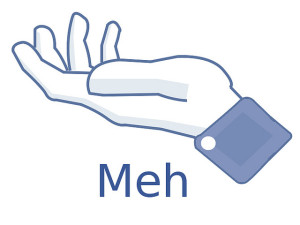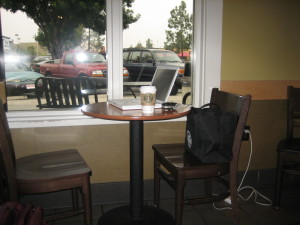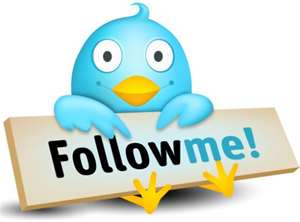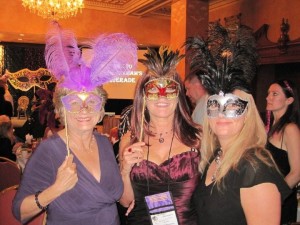By Joe Moore
This week, ThrillerFest VII, the annual writer’s conference sponsored by the International Thriller Writers is taking place once again in the heart of the publishing universe, NYC. Like many other major conferences held each year, ThrillerFest is a great opportunity for writers and fans to come together and celebrate their love of the genre. If you’ve attended a conference like ThrillerFest, you already know the benefits. If you haven’t yet experienced a conference, make a goal to do so soon. You won’t regret it.
ThrillerFest is actually a combination of 3 events: CraftFest, AgentFest and ThrillerFest. CraftFest is a 2-day series of workshops taught by some of the most successful mystery and thriller authors on the planet. Names like Berry, Sandford, Gardner, Coulter, Palmer, Morrell, Rule, Child, and TKZ’s own James Scott Bell are just a few of the instructors on staff this year.
ThrillerFest is a 2-day collection of discussion panels and spotlight guest interviews culminating in the naming of this year’s ITW Thriller Awards.
AgentFest is an insanely popular opportunity for writers to pitch their manuscripts to over 50 top New York agents and editors. The pitching exercise is what I want to talk about today.
We all know how important it is to prepare when pitching a manuscript to an agent: look professional, act professional, be able to summarize your premise in a couple of sentences, and know that not every book is right for every agent (most of the time, that’s why they say no).
But what about those things you don’t want to do; those things that could wreck you presentation or turn off the agent? Here are a few pitfalls to avoid:
Never refuse advice or feedback. Even if the agent or editor is not interested in your book, many times they will offer suggestions or advice on making it more marketable. Never have a closed mind and think that it’s your way or the highway. Professional agents know the market and are aware of what the publishing houses are looking for at any given moment. Also remember that just because an agent is not interested in your book doesn’t mean the book is not publishable. It’s just not for them.
Don’t begin your pitch by saying that “everyone loves your book.” Of course they do, because everyone is probably your family and friends, and if per chance they don’t like it, the last thing they want to do is hurt your feelings. If they didn’t like the book and were completely honest with you, it would be like hitting your ego with a sledgehammer. Now on the other hand, if John Grisham, Ken Follett or Stephenie Meyer read your manuscript and loved it, I would mention that somewhere right after "hello".
Don’t be a pest. By that I mean sending the agent multiple emails, phone calls, letters, presents, or anything else that would quickly become annoying. If the agent says no, the likelihood of you turning them around with a box of Godiva chocolates is not good. Send it to me instead.
Don’t suggest that if the agent wants to know all about you they can visit your website or blog. It doesn’t matter if Michelangelo designed your graphics, James Patterson wrote your text, and Lady Gaga composed the music for your book trailer. The agent doesn’t care. All she wants to know is: who are you, what is your idea, and can you present it in a logical, concise and professional manner.
Even if your manuscript has been rejected before, don’t volunteer that information. As far as the agent is concerned, they’re getting the first look at your idea. They’re also realistic and know it’s probably been pitched before. And the fact that you’re standing there means that if it was, it was rejected. Always remember that rejection is as much a part of the publication process as line editing or cover design. It happens to everyone. Move on.
Don’t claim that no one has ever written anything like your book before. If that’s really true, there’s probably a good reason no one has. But trust me, claiming that what you’ve written is a brand new idea is as compelling as claiming you have the winning numbers for tomorrow’s lotto. What you might want to do is suggest that you’ve completed a unique and original treatment of a well-established theme or premise. That will make sense to the agent.
Never say that your book is going to be the next blockbuster or that it should be made into a movie. The top professionals in the publishing and motion picture industries cannot predict with certainty what will be the next blockbuster or bestseller. Neither can you.
In general, always assume that an agent or editor has already heard every variation on a theme there is, because they have. Much of your success in capturing the attention of an agent is you, not your story. Be enthusiastic but not obnoxious, knowledgeable but not condescending, proud but not conceded, prepared but not pushy. And most of all, be friendly and professional. Your presentation is a foreshadowing of what it would be like to work with you. Agents don’t want to spend a year or more in a wrestling match with a jerk.
Remember that literary agents and editors are people, too. Yes, they can have a tremendous impact on your writing career, both positive and negative. But just like the rest of us, they get excited when they hear a great idea. Treat them as people, not gods.
If you practice all these tips and you have a killer idea for a book, there’s a good chance the agent will hand you her business card and ask for a partial. And if by chance, she asks for a full, go celebrate. You’ve accomplished more than most ever will.




















![47818_1620714999377_1281480214_3375064_7165332_n[1] 47818_1620714999377_1281480214_3375064_7165332_n[1]](https://killzoneblog.com/wp-content/uploads/2012/07/47818_1620714999377_1281480214_3375064_7165332_n-25255B1-25255D_thumb-25255B6-25255D-175x300.jpg)
![6827_151133441022_711531022_4017786_5894507_n[1] 6827_151133441022_711531022_4017786_5894507_n[1]](https://killzoneblog.com/wp-content/uploads/2012/07/6827_151133441022_711531022_4017786_5894507_n-25255B1-25255D_thumb-25255B1-25255D-300x225.jpg)

